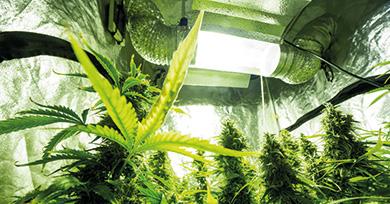
Breadcrumb
- Home
- Search a publication
- Criminal networks and indoor cannabis in Europe: h...
On 8 February 2011 in the Courneuve, a Paris suburb in the Seine-Saint Denis department, approximately 700 cannabis plants were discovered in a clandestine indoor plantation by the investigators of the OCRIEST (Central office on illegal immigration and employment) and the OCRTIS (Central office for the repression of drug-related offences).

Although this plantation was not the first to be discovered on French territory, this case was particularly troubling for the authorities because it was an operational carbon copy of Dutch and British cannabis factories.
As a result, major, fundamental concern was raised regarding the development of herbal cannabis supply. While in France cannabis tends to be supplied by small growers who produce mainly for their own personal needs, the Courneuve case begs the following question: Has organised crime penetrated French herbal cannabis production like in other countries in Europe?
In order to fully understand the issues raised by this question, this article will first examine the current European cannabis market structure.
Thereafter, it will discuss the situation in the main cannabis- producing European countries. Finally, it will examine the situation in France and the possible criminal risks that are taking shape.